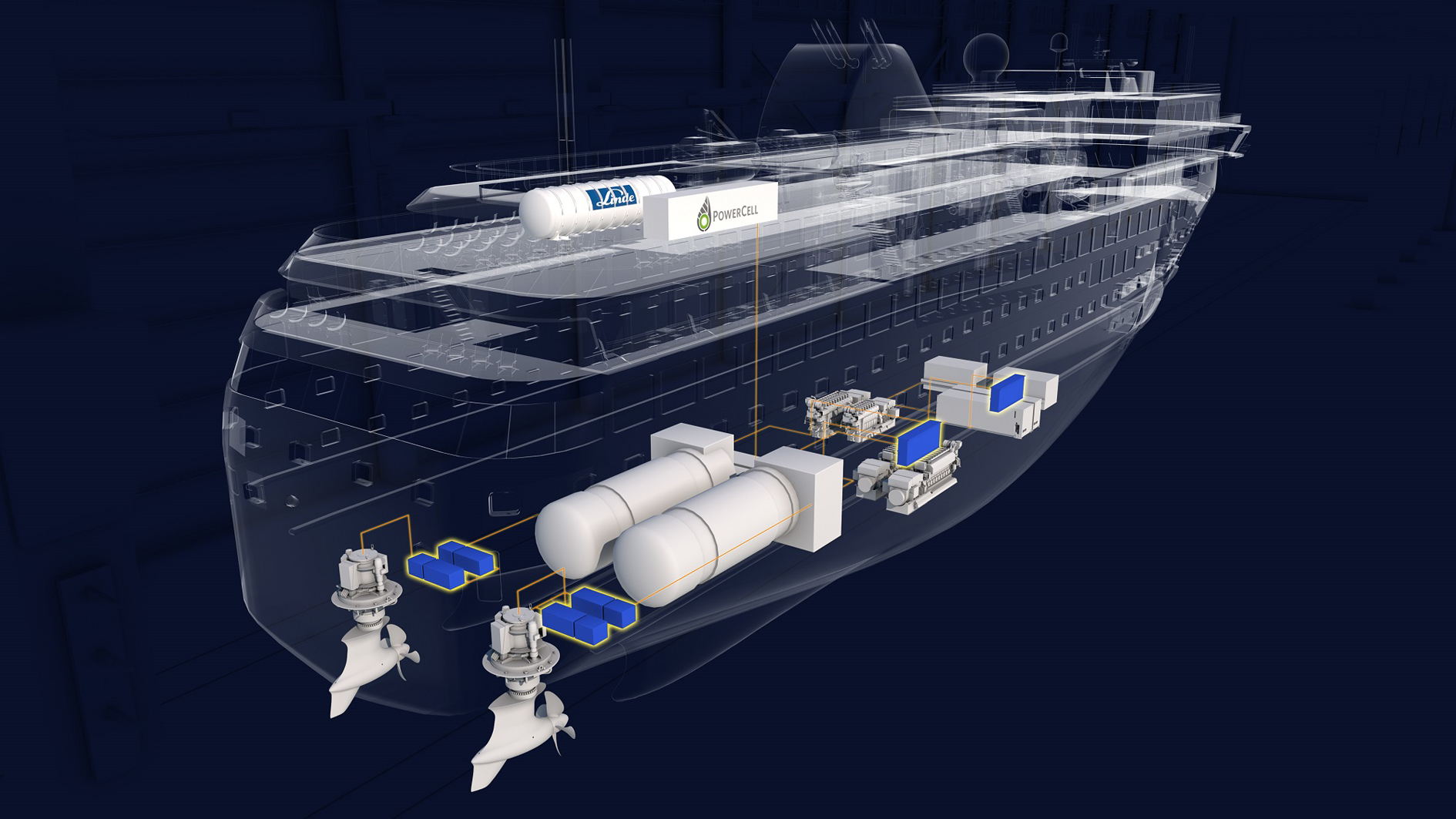Pioneering Norwegian project pursues hydrogen power

Illustration showing how a fuel cells system can be integrated on board (Source: Havyard)
Norway’s Havyard Group has developed a hydrogen-based energy system that could have wide applications in commercial shipping, both for existing vessels and newbuildings. The Group, through its subsidiaries Havyard Design & Solutions and Norwegian Electric Systems (NES), has completed the first phase of the FreeCO2ast, as it is known, and is now beginning the approval process for the hydrogen-based system, together with Linde Engineering as tank supplier and PowerCell Sweden AB as provider of fuel cells.
Havyard’s initial interest in hydrogen as a sustainable energy source for ships stemmed from the fact that large zero-emission vessels sailing over long distances will not be able to rely on batteries because they are not sufficiently powerful over lengthy periods. Fuel cells running on hydrogen offer an option, however, although there are challenges, including the fact that hydrogen has a boiling point of -252.9° and is therefore difficult to handle and store.
Kristian Osnes is heading the Havyard Group’s project. He explained that Linde is the right partner with which to tackle this challenge because the company has long experience in the design and manufacture of equipment for handling cryogenic gases. “We believe they are the right partner for finding solutions that will ensure safe storage and control barriers for cryogenic hydrogen on board ships,” said Osnes “The regulations for these solutions have not yet been developed, and we are pleased to have Linde on board when entering the approval process, which we expect to be very challenging.” He said that fuel cells have similarities with battery technology and pointed out that the group subsidiary, NES, already has experience of battery applications across a range of ferry projects.
Meanwhile fuel cells are PowerCell’s core technology: the company has worked closely with Bosch in the development of fuel cells for the car industry. So, Osnes said, the aim now is to take the zero-emissions goal one step further – from batteries to hydrogen. The Havyard Group, which is working on the FreeCO2ast project as part of the Norwegian state-supported PilotE initiative with research institutions Sintef and Prototech, has another reason for driving it forward. Under the agreement with Linde and PowerCell, the companies will design a hydrogen energy system for ships as the first step towards certification. When it is approved, it will be offered to Havila Kystruten, another Havyard Group subsidiary, for retrofitting to existing vessels. “This encourages us to have a comprehensive solution in mind from the start,” said Osnes. “We will deliver a system that is safe, that takes up little space, that is easy to retrofit and, of course, that does the job.”
